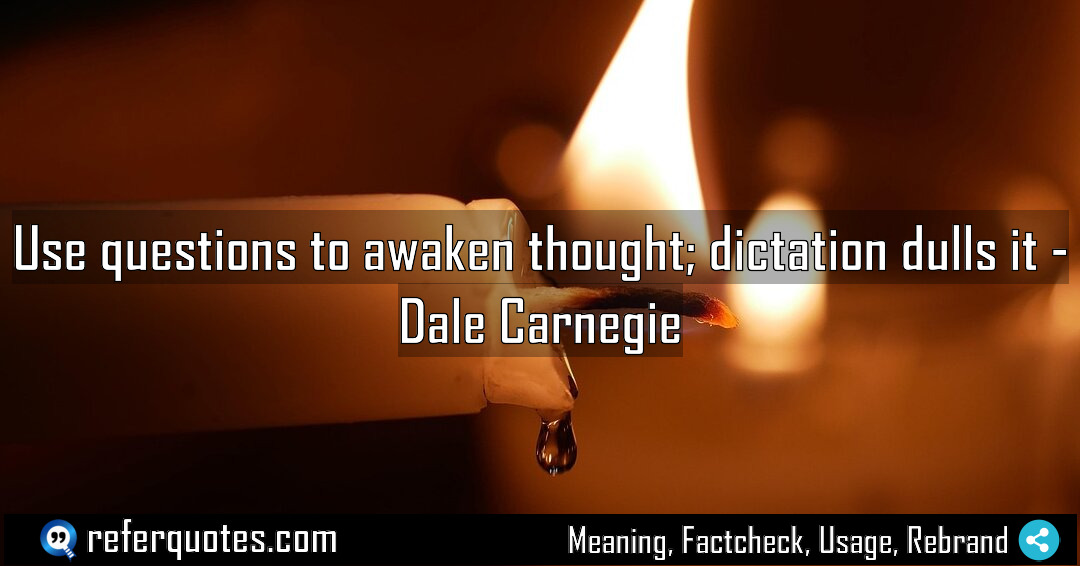You know, I’ve seen it time and again: “Use questions to awaken thought” is the secret to truly engaging people. Dictation just shuts their brains off. It’s the difference between a monologue and a real conversation.
Share Image Quote:Table of Contents
Meaning
The core message is simple but profound: questions spark active thinking, while simply telling people what to think makes them passive and disengaged.
Explanation
Let me break this down for you. When you dictate information, you’re essentially just transferring data from your head to someone else’s. It’s a one-way street. And let’s be honest, most people’s brains just aren’t wired to stay tuned in for that. But a question? A good question is like flipping a switch. It forces the listener’s mind to light up, to search for connections, to *create* an answer. It’s the difference between handing someone a fish and teaching them how to fish. One feeds them for a day, the other teaches them a skill for life. That’s the power you’re wielding.
Quote Summary
| Context | Attributes |
|---|---|
| Original Language | English (3668) |
| Category | Education (260) |
| Topics | engagement (17), questioning (5), thinking (18) |
| Literary Style | contrasting (12), provocative (37) |
| Overall Quote Score | 64 (18) |
Origin & Factcheck
This wisdom comes straight from the classic 1915 book, “The Art of Public Speaking,” co-authored by Dale Carnegie and Joseph Berg Esenwein in the United States. It’s a cornerstone of their philosophy on effective communication. You’ll sometimes see it attributed to just Carnegie, but it was very much a collaborative work.
Attribution Summary
| Context | Attributes |
|---|---|
| Author | Dale Carnegie (408) |
| Source Type | Book (4032) |
| Source/Book Name | The Art of Public Speaking (25) |
| Origin Timeperiod | Modern (530) |
| Original Language | English (3668) |
| Authenticity | Verified (4032) |
Author Bio
Dale Carnegie(1888), an American writer received worldwide recognition for his influential books on relationship, leadership, and public speaking. His books and courses focus on human relations, and self confidence as the foundation for success. Among his timeless classics, the Dale Carnegie book list includes How to Win Friends and Influence People is the most influential which inspires millions even today for professional growth.
Official Website |Facebook | X | Instagram | YouTube |
Where is this quotation located?
| Quotation | Use questions to awaken thought; dictation dulls it |
| Book Details | Publication Year/Date: 1915 (first edition); ISBN/Unique Identifier: 9781420933431 (common Digireads reprint); Last edition. Number of pages: common reprints ~300–480 pages (varies by printing) |
| Where is it? | Part III Interrogation and Dialogue, Unverified – Edition 1915, page range ~110–120 |
